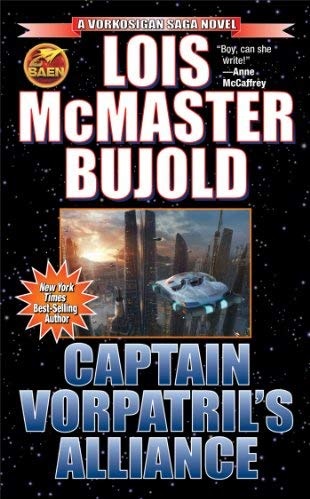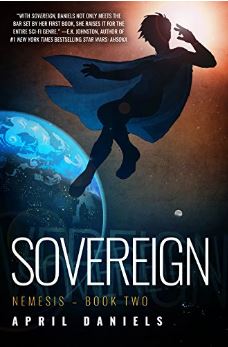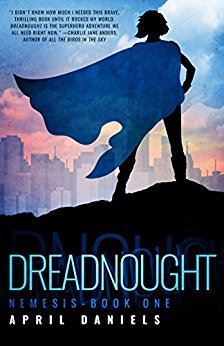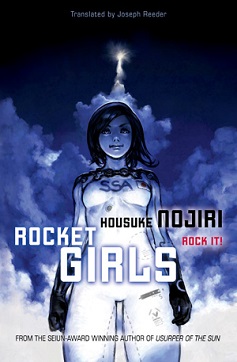
Captain Vorpatril’s Alliance
Lois McMaster Bujold
573 pages
published in 2012
It was only a last minute impulse that made me grab Captain Vorpatril’s Alliance from my bookshelves when I went to visit my parents last Friday, but the end result was that I started reading it when I’d arrived and finished it the same night, at 2:30 AM. Some novels just grab you like that and Bujold is more likely than most writers to write them. Her Vorkosigan saga has long been comfort reading for me, but as I’ve noticed time and again, especially on rereads, her novels always have more depth than you first realise.
Post A Civil Campaign, the Vorkosigan series has been a bit disappointing to me however, as Bujold seemed content just to coast. Both Diplomatic Immunity and Cryoburn were fairly conventional adventures, where Miles gets himself into trouble and has to get himself out of it again, lacking some of the with and sparkle of the earlier books. Worse, these completely sideline Ekaterin, Miles’ wife, who had proven herself to be a worthy co-protagonist in Komarr and the aforementioned A Civil Campaign. Worse, Miles himself had become a bit boring, having overcome most of the challenges life had thrown at him.
But Captain Vorpatril’s Alliance doesn’t star Miles, but rather Miles idiotic cousin, Ivan. And Ivan is an inspired choice. Whereas Miles is smug and glib, able to just power through adversary through sheer force of personality if nothing else, Ivan starts off out of his depth and remains that way to the end. At times, he’s more a concerned bystander than an actual participant in his own adventures. What he does have in common with his hyperactive cousin is that both are able to make incredibly bad choices that tend to work out incredibly well for them. Most of the time.
For Ivan, it all starts when Byerly Vorrutyer rings his doorbell one evening after work. Byerly you may remember from earlier books in the series, on the surface a wastrel and minor, somewhat dodgy aristocrat who in truth works for the Imperial Security services. While Ivan is on Komarr because he’s on the staff of the admiral holding inspections there , Byerly is there to investigate some conspiracy. And lucky Ivan, now Byerly needs him to seduce the girl who seems to be the main target of the conspiracy. Having protested in vain, the next day Ivan visits the girl at her work, buys a hideous gift for Miles as a cover, attempts to flirt, then follows her home where he’s promptly stun gunned by her unsuspected, blue skinned companion…
The only thing Ivan succeeds in is convincing them not to dispose of him out of hand and it’s fortunate indeed for Tej — the girl in question– and Rish — her blue companion — that he did so. Because later that night the real assassins they were worried about appeared, Ivan manages to successfully stall them even when tied to a chair for Tej and Rish to take action and one phone call to the local Kommarian police later they manage to safely flee to Ivan’s apartment. Because of that phone call though the police arrives to question Ivan about what happened that night and because they show up at his work and because he’s of course rather important in his own way (by accident of birth, rather than merit) ImpSec also gets involved.
All of which he could probably deal with on his own, but he’s loath to deliver Tej to the Kommarian authorities when there are still people after her and Rish’s lives. When things come to a head the police is at his door with a search warrant, he makes the sort of desparate gamble he normally condemns Miles for and persuades Tej to marry him using an old Barrayan ritual, with Byerly as witness. And it works. Up to a point. All his immediate problems disappear and he, Tej and Rish get to hitch a ride with Ivan’s boss to Barrayar. There, Ivan had explained to Tej, it will be easy to get a divorce and it’s unlikely the assassins will be able to reach them. Everything’s coming up roses, but he’ll still have to explain everything to his family…
And with this Captain Vorpatril’s Alliance shifts into something like a comedy of manners, reminiscent of A Civil Campaign. Because of course it’s not that simple. For a start, while both are completely oblivious to it, it’s clear to the reader and Ivan’s circle of friends & family that he and Tej are attracted to each other, do make a good couple. Not in the least because within their respective families they sort of hold the same reputation of nice, but useless and share the experience of having their contributions overlooked, of being ignored. Tej is the youngest daughter of the head of one of the great houses on Jackson’s Whole, who had to flee for her life during a coup against the House, not knowing whether the rest of her family was still alive. Before that, she was always the baby of the family, loved but seen as little more than a pawn to be married off to another House when convenient.
Ivan of course is “that Idiot, Ivan”, always stuck in the shadow of not only Miles, but also his mother and aunt and content to remain there for the most part, his response to being quite high up in the line of succession to the Barrayaran throne. Now we’ve seen much of this only from Miles’ point of view, so it’s great to see Captain Vorpatril’s Alliance taking the time to flesh this out a bit more, as Ivan has to deal with the burgeoning relationship between his mother and Simon Illyan, the retired ImpSec head that was started a few books earlier. It’s nice to see Ivan as more than just a foil for Miles’ schemes, with some genuinely touching scenes with him and his mother.
Then, in the final third of the novel we switch gears again as it turns out Tej’s family is still alive and is on Barrayar. Now we get Ivan and Tej caught between a rock and a hard place, as the patriarch of the family makes some sort of bet with Simon Illyan about some sort of treasure dating back to the Cetengandan occupation of Barrayar some fifty years ago. Now it’s more of a comedic crime caper as Ivan has to find out just hat is going on while Tej’s assassins are also closing again…
After two minor novels in the series, Captain Vorpatril’s Alliance comes as a relief. It shows there’s still life in this series, even if only when the focus is taken away from Miles. Best read if you’ve already read the rest of the series, though you can skip the two novels between it and A Cvil Campaign.



